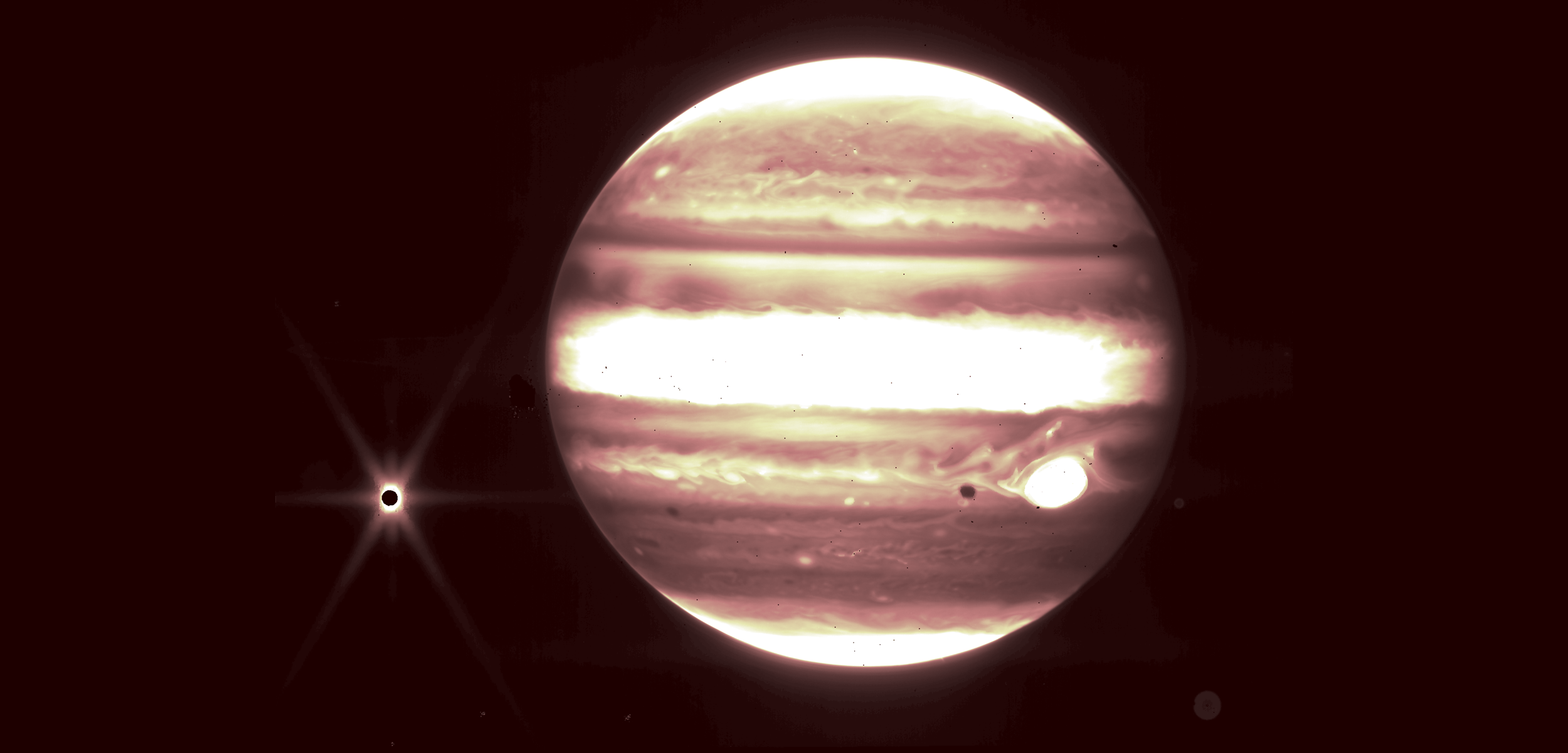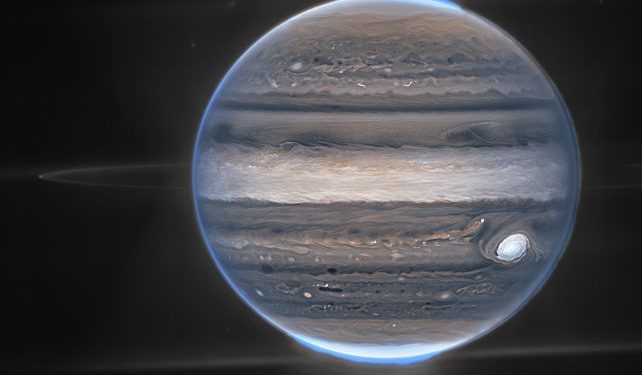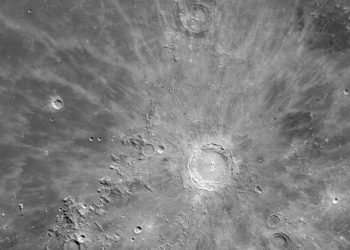The quest to unravel the mystery of dark matter has led scientists to explore unconventional ideas, and now a bold new proposal suggests Jupiter might hold the key. Researchers believe that the largest planet in our solar system could serve as a unique “detector” for this elusive substance, potentially revealing its presence through faint flashes of light produced by neutrino interactions.
Jupiter’s massive gravitational field makes it an ideal candidate for capturing dark matter particles. Jupiter is a celestial powerhouse with a composition dominated by hydrogen and helium, a magnetic field stronger than any other planet, and a gravitational pull capable of tearing apart comets like Shoemaker-Levy 9 in 1994. Its enormous size—it could contain all other planets combined with room to spare—further enhances its potential as a dark matter trap.
Dark matter, which accounts for approximately 27% of the universe, remains one of the biggest puzzles in astrophysics. It doesn’t emit, absorb, or reflect light, making it undetectable by conventional means. Instead, its presence has been inferred through its gravitational effects on galaxies and other large-scale structures. Despite decades of research, scientists still know little about its true nature.
The Role of Neutrinos and Cherenkov Detectors
A recent study by Sandra Robles of King’s College London and Stephan Meighen-Berger of the University of Melbourne proposes a groundbreaking method to detect dark matter. The researchers suggest that Jupiter could capture and annihilate dark matter particles, producing neutrinos in the process. These neutrinos could then be observed using water Cherenkov detectors—high-energy particle observatories designed to detect faint flashes of blue light known as Cherenkov radiation.

Cherenkov radiation occurs when charged particles travel faster than the speed of light in a medium like water, creating an optical “shockwave” that can be detected. This technique has already been used to study neutrinos emanating from the Sun, and researchers argue that applying it to Jupiter could yield similar results.
The study emphasizes that Jupiter’s relatively low core temperature and immense gravity make it particularly suited to this type of investigation. By focusing Cherenkov detectors on Jupiter, scientists could potentially observe neutrinos with energies between 100 MeV and 5 GeV—evidence of dark matter interactions occurring within the planet.
Why This Matters for the Future of Astrophysics
This innovative approach could revolutionize how we study dark matter, shifting the focus from Earth-based detectors to celestial observatories. The implications of successfully detecting dark matter through Jupiter are enormous. It would not only confirm theories about dark matter interactions but also open up new avenues for exploring the universe’s most mysterious substance.
While challenges remain—such as isolating signals from background noise and improving detector sensitivity—this research represents a bold step forward in the hunt for dark matter. As technology advances, we may one day use the planets themselves as tools to probe the hidden fabric of the cosmos.
Could this idea extend beyond Jupiter? Saturn, with its own massive gravitational field and unique features, might also serve as a candidate for similar studies. As scientists refine their techniques, the search for dark matter may lead us to view our solar system in an entirely new light, transforming planets into natural laboratories for cutting-edge research.
Join the Conversation!
Have something to share or discuss? Connect with us on Facebook and join like-minded explorers in our Telegram group. For the latest discoveries and insights, make sure to follow us on Google News.











